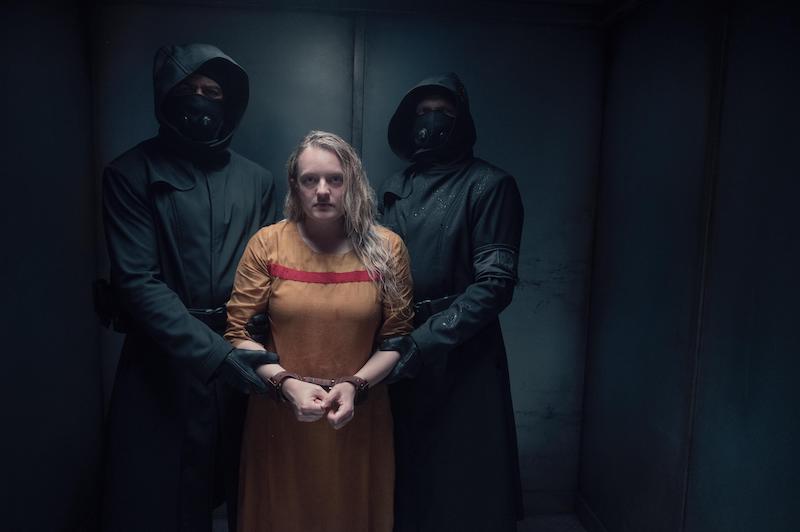Note: If you wish to receive, via e-mail, (1) my weekly newsletter or (2) daily copies of these posts, notify me at rrbates1951@gmail.com and indicate which you would like. I promise not to share your e-mail address with anyone. To unsubscribe, send me a follow-up email.
Monday
I suppose it’s not uncommon for writers to regret leaving things out of recently published work, and I have two regrets about Better Living through Literature. In the chapter on postcolonial literary theory, I wish I had included Edward Said along with Franz Fanon since the author of Orientalism has a lot to say about how literature can influence (often negatively) our view of other cultures. I also wish I had included Handmaid’s Tale as a work that has impacted history.
Like George Orwell’s 1984, Margaret Atwood’s novel provides a compelling lens through which to process the workings of authoritarianism, to which it adds insights into toxic masculinity. The novel’s power was enhanced by the riveting television adaptation, which gave rise to the iconic red cloaks and white bonnets employed in protests around the world. Even without this extra boost, however, the novel would have made its mark.
To be sure, just as “no lyric has ever stopped a tank” (to quote poet Seamus Heaney), so no novel can prevent a coup. Nevertheless, Handmaid’s Tale has proved a boost to women’s resistance movements everywhere, which is why various MAGA-run school boards and libraries have been banning it. Yale history professor Timothy Snyder, one of our go-to experts on the nature of tyranny, makes excellent use of the novel by applying it to Trump’s current nominee for secretary of defense.
Pete Hegseth, Snyder says, “has two ideas about what the armed forces are for: a site to express Christian Reconstructionism and gender ideology; and a means to defeat other Americans inside America.” Gender ideology is more important to Hegseth, Snyder says,
than the world itself, let alone the security interests of the United States. He wants us to believe that the two are the same thing: that women in uniform prove the existence of a Leftist plot to destroy America.
With the looming threat of Hegseth heading the military, Snyder reminds us that Atwood’s plot also involves a few men who wish to oppress women. Their Christian Reconstructionist coup, which they present as God’s law, succeeds in supplanting the United States with Gilead.
If Hegseth were to be confirmed, one of his first targets would be Adm. Lisa Franchetti, the first woman to serve as Chief of Naval Operations and the first woman ever on the Joint Chiefs of Staff. Hegseth has contended that “to create a society of warrior women you must separate them first from men, and then from the natural purposes of their core instincts.” To which Snyder responds,
This is pure gender ideology. He is just making this up. Women who have seen combat have not been separated from men or their instincts. They are sometimes traumatized. As are men. Armies fight with women when and because it works. Women can kill men and then raise children and, historically speaking, have done so.
Thinking of Ukraine Snyder adds, “They are doing so right now.”
Hegseth’s Christian views, meanwhile, are as authoritarian as his gender views. The Constitution, he believes, is (in Snyder’s summation)
subordinate to a broader unwritten Covenant with God, the meaning of which is of course known to him personally. He thus opposes the constitutional structure of the United States as it figures in the actual text.
Asserting that America’s founders separating church and state opened “the gates of Mordor,” Hegseth believes that constitutional patriotism is bad since it can (in his words) “untether us from the timeless truth.” “Without God, America is not America,” he contends, blaming what he sees as America’s malaise on “the diminished role of Christ’s Kingdom in America’s founding.”
“As is always the case,” Snyder responds sarcastically, “God’s law turns out to mean what Hegseth and his friends say that it means.”
The Yale historian points out that there is one other similarity between Hegseth and Gilead’s guardians:
In the novel…people very much like Hegseth come to power, oppress women, and turn the armed forces into domestic shock troops who fight a civil war…[T]he notion that women are just objects goes hand in hand with the idea that the real fight for American soldiers is against other Americans.
Trump too has talked of purging the armed forces while Hegseth once fantasized about civil war should Joe Biden be reelected:
America will decline and die. A national divorce will ensue. Outnumbered freedom lovers will fight back. The military and the police, both bastions of freedom-loving patriots, will be forced to make a choice. It will not be good. Yes, there will be some sort of civil war.
Would this man resist a Trump order to invoke the insurrection act against peaceful protesters?
Interestingly, Snyder draws on the novel to end his essay on a partially positive note:
Misogyny is not the elevation of masculinity but its collapse, both as morality and as politics. Although the richness of Atwood’s story is in the exposition of a modern patriarchy, I find it important to note that Gilead, the Christian Reconstructionist state, does not endure for long.
Earlier in the essay Snyder observes that Gilead is never able to fully control all its former territories, and we’re currently seeing efforts by blue states to protect their populations from MAGA fundamentalists. So perhaps Trumpism will indeed just be a temporary phenomenon. Unfortunately, it can do a lot of damage in a short period of time.
Let your members of Congress know that Hegseth is unacceptable. A warning, however: If you compare him to Gilead’s guardians, some in the GOP might regard that as an endorsement.


